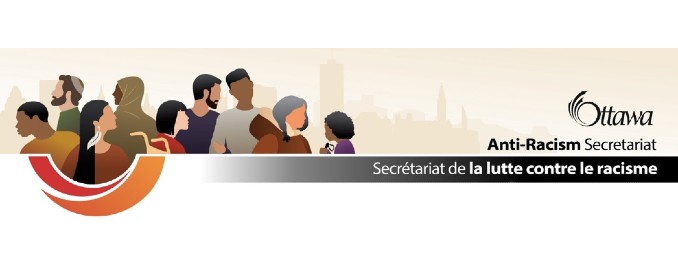City of Ottawa Launches Its First Anti-Racism Strategy
January 16, 2023The City of Ottawa acknowledges the unique ways in which racism is experienced at the individual, institutional and structural level and recognizes how racism is deeply embedded into societal systems, often operating in ways that are invisible. Systemic racism consists of organizational policies, directives, practices or procedures and structures that exclude, disadvantage or marginalize Indigenous, Black and other racialized groups or create unfair barriers to access benefits and opportunities
On June 22, 2022, Ottawa City Council approved its first Anti-Racism Strategy, a five-year plan to address systemic racism and will inform the application of an anti-racism approach in the way the City develops policies, makes decisions, evaluates programs, and measures outcomes.
The strategy was the outcome of a broad and comprehensive multi-phase process that engaged more than 1000 Ottawa residents from Indigenous, Black and other racialized communities, community partners, subject matter experts, and City of Ottawa employees.
The development of the Strategy would not have been possible without the tremendous efforts, time, commitment, and collaboration of many partners, consultants, community organizations, including OLIP, who worked in partnership with more than 100 City staff, to draft the City of Ottawa’s Anti-Racism approach and action plan.
A community led Anti-Racism Advisory table was established to advise the City on strategic actions to inform the Anti-Racism Strategy. Membership of this table included, the Mayor’s Office, the Council Liaison for Anti-Racism and Ethnocultural Relations Initiatives, City staff and 17 community leaders from Indigenous, Black and other racialized communities, including OLIP, who worked collaboratively to bring forward community perspectives.
The strategy outlines 28 recommendations and 132 strategic and measurable actions to address the following seven areas:
- Governance
- Housing
- Economic Development
- Health Outcomes
- Children and Youth Development
- Achieving Racial Equity in the Workplace
- Institutional Practices
The Anti-Racism Strategy is designed with a recognition that we must work as allies and partners, including other levels of government and institutions, to address systemic racism in municipal policies, services, programs and the City’s workforce.
The Strategy will be implemented in two phases. Phase one will take place from 2023-2025 and will focus on building internal capacity and awareness in the workplace, on learning the application of an anti-racism approach in City processes and service provision, on deepening relationships with Black and other racialized communities, and the collection of gender and race-disaggregated data that will form the baseline for measuring the progress of all future actions.
Phase one will include the implementation of action items in all seven priority areas, with an emphasis on governance, children and youth development, achieving racial equity in the workplace, and institutional practices. City of Ottawa staff will provide a mid-term report to Council upon completion of phase one, and validate progress made with stakeholders and community partners, to inform the direction for phase two (2025-2028).
The journey towards a safe, equitable and anti-racist city will not be straightforward and will be lined with bold and courageous conversations. We are confident that through our continued efforts we can move forward, together, in continuing to shape our city into one where everyone experiences a sense of belonging.
This article was submitted by Suzanne Obiorah, Director, Gender and Race Equity, Inclusion, Indigenous Relations and Social Development, City of Ottawa.


 All the WOW events that I went to were great – WOW does give a sense of a community trying to improve its attraction and retention!
All the WOW events that I went to were great – WOW does give a sense of a community trying to improve its attraction and retention!

